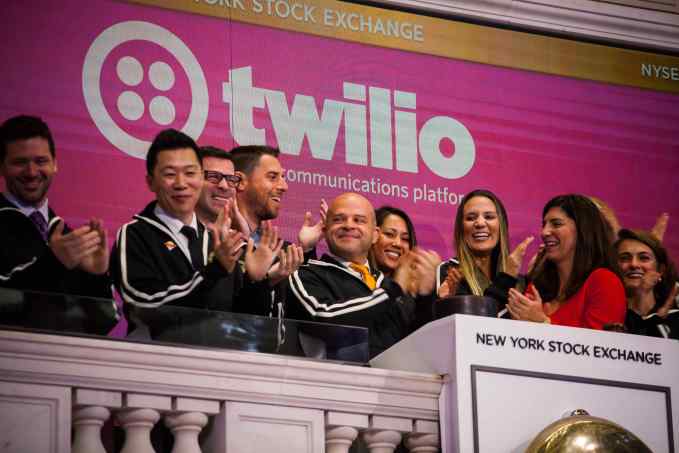| |
| | | We haven’t reached the point where a cardiac surgeon in a Chicago hospital can perform a life-saving operation on a patient in Antarctica, but that’s where we’re headed. Medical robots may be new, but they’re already being used for routine procedures like hip and knee replacements and eye surgery. “With our 2020 Robotics+AI sessions event now just one week away, we asked four of the most active VCs investing in medical and surgical robotics to share what's exciting them most and where checks are actually being written in the sector," says TechCrunch Hardware Editor Brian Heater. Just last year, medical robotics startups raised between 600 and 700 funding rounds. “Unlike other categories that operate in the largely theoretical, a number of robotics are already out in the world performing surgery on humans,” says contributor Arman Tabatabai. “Health care and medical has been an exciting category for robotics investment for decades and is continuing to grow at a rapid pace.” Also this week: - Ron Miller and Alex Wilhelm analyzed a Twilio March 2010 board deck shared by CEO Jeff Lawson. At the time, the company was just “a tentative early-stage company feeling its way forward in the market with an unproven product.”
- In a seven-part series, media columnist Eric Peckham studies the next era of social media, “where the virtual worlds of games expand to become mainstream hubs for social interaction and entertainment.”
- Disney announced yesterday that CEO Bob Iger would step down at the end of this year and hand the reins to Bob Chapek, who heads the Mouse’s parks, experiences and products divisions. What are the implications for media and entertainment?
Thanks for reading, Walter Thompson
Senior Editor
@yourprotagonist P.S. Starting next week, you’ll receive these Extra Crunch digests one day earlier on Tuesdays and Fridays. Read more | | | |
| |  Image Credits: Manoa / Getty Images | | Watching rocket launches (and landings) live on social media is legit exciting, but Tess Hatch, VP of Bessemer Venture Partners, told TechCrunch that payload variety and innovation are areas to watch when it comes to space tech. "I don't think there's room for any more rockets in the industry," she said. Most small satellites have cameras or communication tech on board, but new sensors that can gather different types of data are driving innovation and investment, Darrell Etherington writes. Read more | | | |
| |  Image Credits: Jamie Grill / Getty Images | | Facebook plans to spend $1.4 billion on shows for Facebook Watch and YouTube has a $100 million fund that supports children’s video content, but new startups are also creating products and services intended to help young viewers manage their media consumption. Social engagement, parental controls and authentication services are just a few of the tools reaching the marketplace as media giants ramp up their efforts to capture young minds. Read more | | | |
| |  Image Credits: 10,000 Hours / Getty Images | | It’s pro forma for scrappy startups to attend major tech conferences, but once you’re in the hall, how do you make a deal if you’ve never done one before? Before you try to get on the guest list for an exclusive VC afterparty, consider your options and decide which outcome you’re working toward. Read more | | | |
| |  | | European venture firm Oxx recently closed a $133M fund that backs regional SaaS companies, but co-founders Richard Anton and Mikael Johnsson fundamentally disagree with the industry’s “grow at all costs” mindset. “The companies that best meet their customers' needs always end up winning,” Anton told TechCrunch. Reporter Steve O’Hear spoke to the duo “to dig deeper into their thinking, both with regards to the firm's remit and investment thesis, and to learn more about the pair's criticism of the prevailing venture capital model.” Read more | | | |
| |  Image Credits: Mario Gogh / Unsplash | | Senior Editor Alex Wilhelm reviewed interviews with founders and investors he’s conducted over the last several months to better understand the current state of public and private markets. By breaking the world down into four different perspectives (optimist, mid-cycle pragmatist, caution-minded and the post-peak scold), he tries to find out where we stand in today’s startup business cycle. Read more | | | |
| |  Image Credits: Bryce Durbin | | In the introduction to his seven-part series, media reporter Eric Peckham presents his thesis that we are “entering a new stage of social media… where the virtual worlds of games expand to become mainstream hubs for social interaction and entertainment.” Read more | | | |
| |  Image Credits: Bryce Durbin | | “Much of what people are doing in games — whether on console, PC or mobile — is socializing,” writes Eric Peckham. In the first post of a series exploring virtual worlds, he looks at the network effects of multiplayer games. Read more | | | |
| |  Image Credits: Li-Anne Dias | | Instead of going public or being acquired, what if more startups “exit to the community?” Nathan Schneider, a Start.coop board member and professor of media studies at the University of Colorado, Boulder is evaluating new methods of helping new companies transition from investor-owned to community-owned models, “which could include users, customers, workers or some combination of all stakeholders,” writes Megan Rose Dickey. Read more | | | |
| |  Image Credits: Scar1984 / Getty Images | | What does “powered by AI” even mean? Artificial intelligence is a crucial part of today’s technology landscape, but it’s good to look beyond the buzzwords found in marketing copy. Reporter Devin Coldewey identifies four phrases that should always encourage you to dig a little deeper into a company’s offerings. Read more | | | |
| |  Image Credits: Bryce Durbin | | "There's not much reality in reality anymore," said CCP Games CEO Hilmar Veigar Pétursson. Virtual spaces like Twitter, Facebook and Instagram offer artificial social dynamics, and “that's why gaming is so interesting from a social network perspective,” writes Eric Peckham. As companies like Google and Facebook embrace gaming, he looks at the potential impact on these hubs and their users. Read more | | | |
| |  Image Credits: Bloomberg / Getty Images | | Customers who use Twilio’s communications API have helped the company reach a market cap of about $15.6 billion, but once upon a time, it was just another early-stage company that had to remain accountable to its board. In the six months after producing this deck from March 2010, the company raised $12 million. “Naturally, we read through it,” writes Alex Wilhelm and Ron Miller. “How could we not?” Read more | | | |
| |  Image Credits: Tommaso Boddi/WireImage | | Amidst this week’s stock market madness and coronavirus headlines, one piece of news almost got lost in the shuffle: longtime Disney CEO Bob Iger is out at the end of this year and Bob Chapek, previously head of parks, experiences and products division, is taking over. To get readers more context for the announcement, we put together a primer that recaps Iger’s time at the helm, the announcement’s market timing, the new CEO — and the executive who was passed over for the role. Read more | | | |
| |  Image Credits: Teera Konakan / Getty Images | | We asked four leading VCs who actively invest in medical and surgical robotics to share what's exciting them most and where they see opportunity in the sector: - Rohit Sharma, True Ventures
Duncan Turner, SOSV & HAX
Peter Hebert, Lux Capital
Haomiao Huang, Kleiner Perkins Read more | | | |
| |
| |
| |
| |
Post a Comment